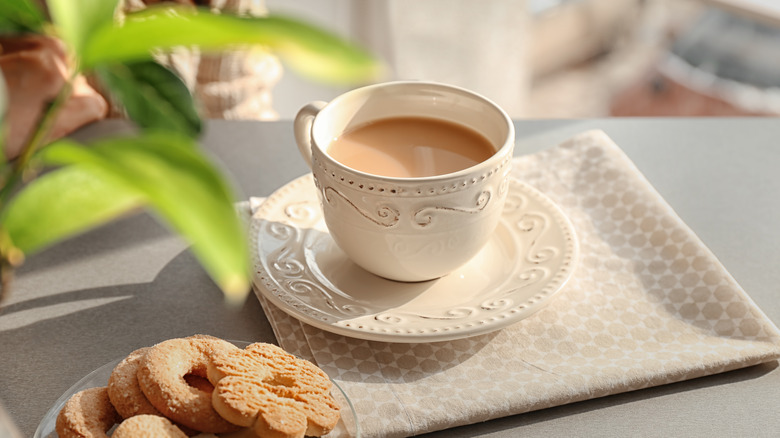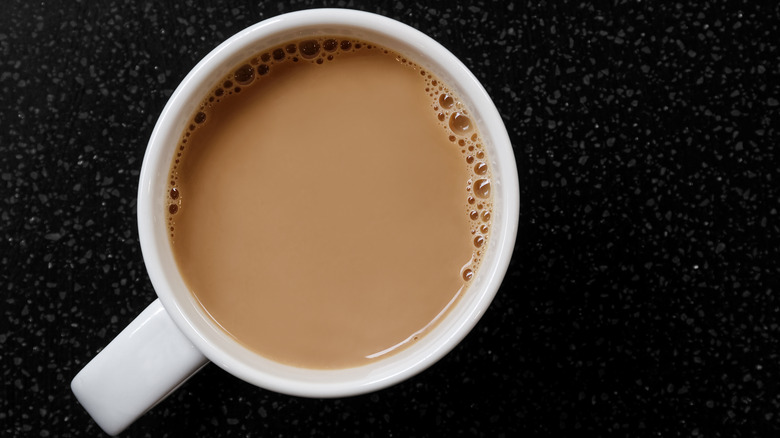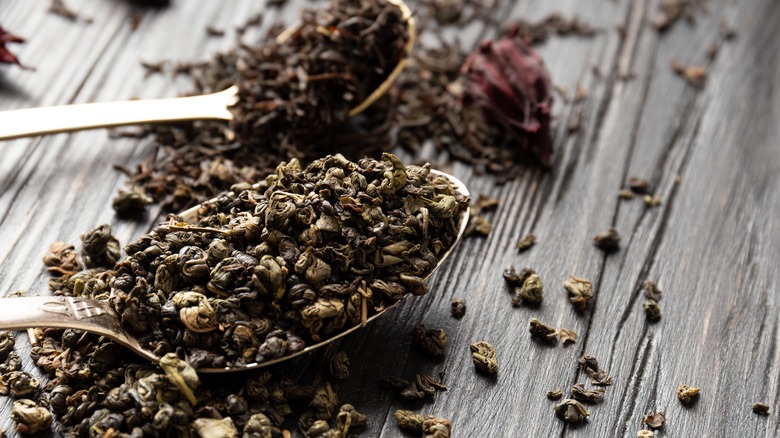Add Milk To Tea Before The Boiling Water For A Flavor Transformation
British people take their tea and their traditions very seriously. As such, there is a right and wrong way to brew tea, but new research done by Professor Alan Mackie of the School of Food Science and Nutrition at Leeds University suggests that a change to the custom may be in order. Well, depending on how you brew your tea — plenty of people already intrinsically know that milk first is the way to go.
Think PEMDAS — you know, order of operations. Often, a traditional British cuppa is made by pouring boiling water — though some would argue boiling water is actually ruining your tea — into a teacup or mug that already has the tea bag (or loose-leaf tea) inside. After steeping for a few minutes, the tea bag is discarded, and then milk and sugar are stirred in. Depending on where you live, this is a hot debate — but science seems to have put it to rest.
The research, funded by INTU Boiling Water Taps, found that the overall taste of the tea was improved when milk was added to the cup before the boiling water. This is especially true in places where the water is hard, meaning it contains a high concentration of calcium and magnesium.
Why does adding milk to tea first affect flavor?
Catechin and caffeine are what give tea its pleasant bite. Catechins, when linked, form bitter tannins, which impart complexity and that unique mouth-drying sensation. The dissolved minerals in water inhibit flavors in the tea from fully developing because these tannins solidify too quickly. The brewed tea then has a more muted taste. When a tea bag is allowed to soak in milk before introducing hot water, the tannins bind to the protein in the dairy. Basically, the flavor-producing tannins are suspended in liquid form for a longer period of time thanks to the milk.
The result is a more nuanced and flavorful cup, according to Professor Mackie — though he doesn't get into the tasting notes. The man has "an unrivaled understanding of the complex interplay of compounds that goes into producing flavour" INTU effuses, so it sounds like his professional opinion should be taken seriously.
What else affects the flavor of tea?
Amino acids in tea like theanine give a rich, full-bodied, umami flavor — while natural sugars found in the leaves (like sucrose, fructose, and glucose) lend sweetness. Other compounds impart aroma, which contributes about 80% of how the taste of food and drink is experienced. For example, when a tea contains nerolidol, it has a fresh, grassy smell, and the presence of dimethyl sulfide gives an oceanic, seaweed-like scent. Cis-jasmon occurs in black and oolong teas and is responsible for fruity and floral aromas.
All these different qualities create a delicate interplay of flavors, and richness and sweetness need bitterness from tannins and caffeine for balance and depth of flavor. Aside from the actual components of the tea leaves themselves, the quality of the product, drying methods, and additives also have an effect. Go ahead and give this novel tea brewing method a try, so you can see for yourself if the change in steps has a notable impact on the taste of your favorite cup of tea.



